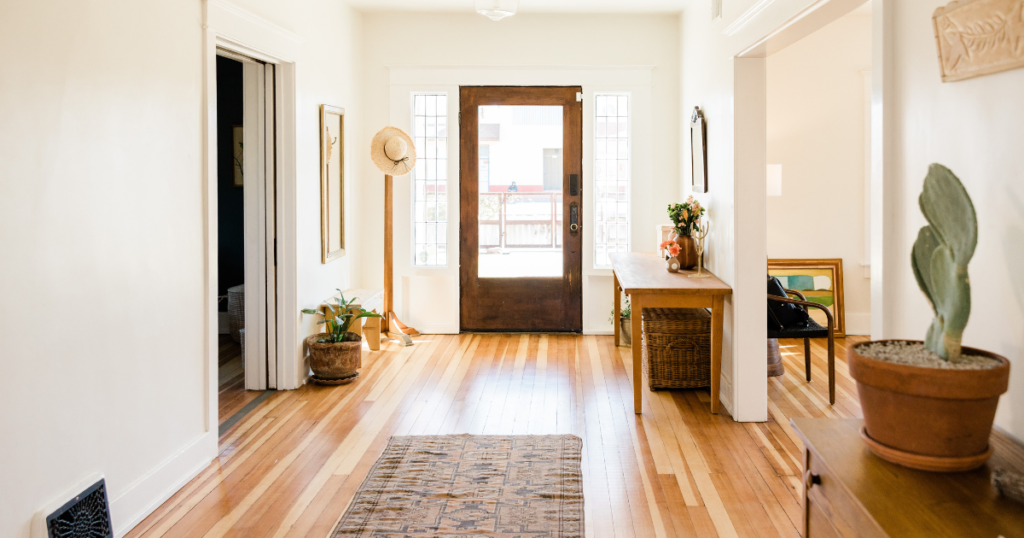The Pros and Cons of Renting vs. Buying a Home
When it comes to deciding whether to rent or buy a home, it’s essential to weigh the pros and cons of each option. Both renting and buying have their advantages and drawbacks, and the right choice depends on your individual circumstances, financial situation, and long-term goals. In this article, we’ll explore the benefits and disadvantages of renting versus buying a home, considering factors like cost, flexibility, and future plans.

Renting a Home
Pros
- Flexibility Renting: One of the most significant advantages of renting is the flexibility it offers. Renters have the freedom to move more easily compared to homeowners. This can be particularly beneficial if you anticipate job relocations, changes in personal circumstances, or simply prefer to live in different locations.
- Lower Upfront Costs Renting: Renting typically requires a security deposit and the first month’s rent, which is substantially less than the down payment needed to purchase a home. This can be a more manageable financial burden for many individuals.
- Maintenance and Repairs Renting: Renters are generally not responsible for major repairs or maintenance. These tasks are usually handled by the landlord or property management, which can save both time and money.
- Predictable Expenses Renting: Monthly rent payments are often fixed, and many rental agreements include utilities or other amenities. This predictability can make budgeting easier.
Cons
- No Equity Building Renting: Rent payments do not contribute to building equity in a property. Unlike mortgage payments, which help you build ownership over time, rent payments go to the landlord with no return on investment.
- Limited Customization Renting: Renters often face restrictions on making changes to the property. Personalizing or renovating your living space may be limited by the terms of your lease agreement.
- Rent Increases Renting: Rent prices can increase at the end of each lease term, potentially making housing less affordable over time. This lack of control over future housing costs can be a disadvantage.
- Stability Concerns Renting: Renting does not guarantee long-term stability. Landlords can choose not to renew leases, and you may face uncertainty about where you will live next.
Buying a Home
Pros
- Equity and Investment Buying: One of the primary benefits of homeownership is the opportunity to build equity. Mortgage payments contribute to ownership, and as property values increase, your investment grows. Homeownership can also offer potential tax benefits, such as mortgage interest deductions.
- Stability and Control Buying: Homeownership provides long-term stability. You are not subject to lease renewals or rent increases, and you have full control over the property. This means you can make renovations, customize your space, and maintain the property as you see fit.
- Predictable Payments Buying: Fixed-rate mortgages offer predictable monthly payments, which can help with long-term budgeting. Additionally, owning a home means you are not subject to the fluctuations of the rental market.
- Potential for Appreciation Buying: Real estate often appreciates over time. While there are no guarantees, owning property may result in significant financial gains if the value of the home increases.
Cons
- High Upfront Costs Buying: Purchasing a home involves substantial upfront costs, including a down payment, closing costs, and other fees. These costs can be a significant barrier for many prospective homeowners.
- Maintenance and Repairs Buying: Homeowners are responsible for all maintenance and repairs, which can be both time-consuming and costly. Unlike renting, where these tasks are often covered by the landlord, homeowners must budget for unexpected repairs and upkeep.
- Less Flexibility Buying: Homeownership can limit your flexibility to move. Selling a home can be a lengthy and complex process, which may make relocating more challenging compared to renting.
- Market Risk Buying: The real estate market can be volatile, and property values can fluctuate. Economic downturns or changes in the housing market can impact the value of your home and potentially result in financial losses.

Frequently Asked Questions (FAQs)
1. Is renting or buying better for first-time homebuyers?
Answer: For first-time homebuyers, renting may be a better option if you are not yet ready for the financial commitment of homeownership. Renting allows you to save money for a down payment, improve your credit score, and gain a better understanding of the areas where you might want to buy a home. However, if you are financially prepared and plan to stay in one location for a long time, buying a home could be a good investment.
2. How do I determine if I can afford to buy a home?
Answer: To determine if you can afford to buy a home, evaluate your financial situation by considering factors such as your credit score, income, debts, and savings. Calculate the total costs of homeownership, including the down payment, closing costs, mortgage payments, property taxes, insurance, and maintenance expenses. Consulting with a financial advisor or mortgage lender can help you assess your affordability and determine the right home price range.
3. Can I negotiate rent or purchase price?
Answer: Yes, it is often possible to negotiate both rent and purchase prices. For rental agreements, you can negotiate the monthly rent, lease terms, or request additional perks such as reduced security deposits. When buying a home, you may negotiate the purchase price with the seller, request repairs or improvements, or seek concessions on closing costs.
4. What are the benefits of owning versus renting in terms of investment?
Answer: Owning a home allows you to build equity over time, which can be a valuable investment if property values increase. Additionally, homeownership offers potential tax benefits and can serve as a long-term financial asset. Renting, on the other hand, does not contribute to equity but offers flexibility and lower upfront costs, which can be advantageous for short-term living arrangements or financial planning.
5. How does homeownership impact my credit score?
Answer: Homeownership can positively impact your credit score if you consistently make mortgage payments on time. Timely payments demonstrate financial responsibility and can improve your credit history. However, missed or late payments can negatively affect your credit score. It is essential to manage your mortgage payments responsibly to maintain a healthy credit profile.
Conclusion
Deciding whether to rent or buy a home involves careful consideration of your financial situation, lifestyle preferences, and long-term goals. Renting offers flexibility and lower upfront costs, making it a suitable choice for those who value mobility and prefer to avoid maintenance responsibilities. Buying a home provides the opportunity to build equity and gain stability, but it requires a significant financial commitment and comes with ongoing maintenance responsibilities. By evaluating the pros and cons of each option and addressing your personal needs, you can make an informed decision that aligns with your goals and circumstances.
